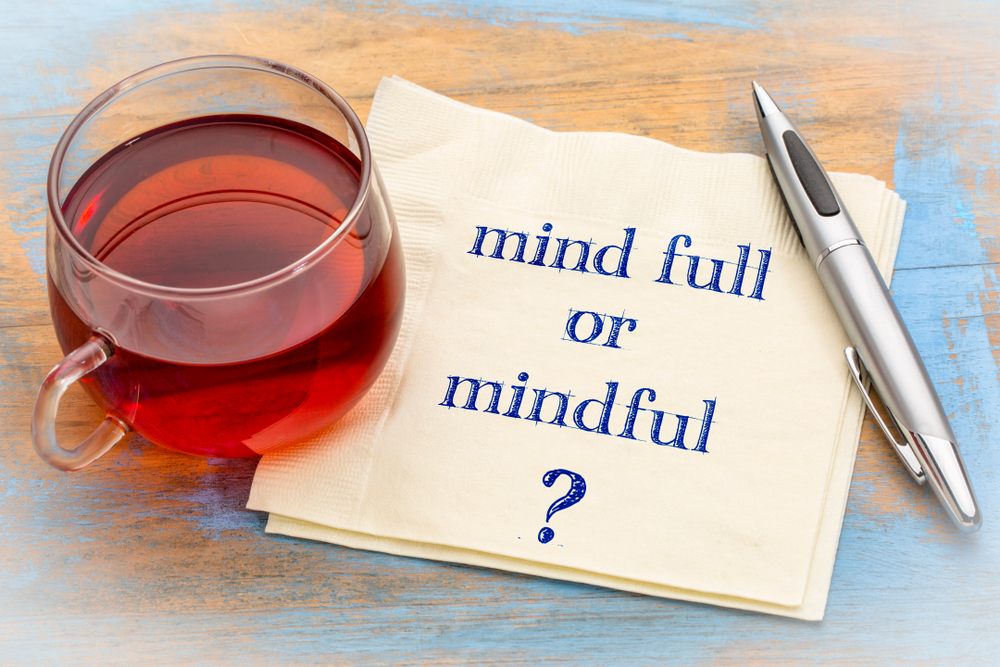
"What you resist will not only persist, but will grow in size" are the words of Swiss psychiatrist and psychoanalyst Carl Jung. To be clear, this is not in reference to injustice and all forms of discrimination.
There are many different types of resistance, but here I'm interested in discussing our resistance to certain emotions as well as situations we cannot control.
Emotional resistance is about not wanting to feel uncomfortable feelings. This process happens on a subconscious level initially and can take on the form of overthinking, avoidance and procrastination, which are all based in fear.
Fear is normal. It is our nervous system's way of protecting us. When we perceive something that causes us pain, we automatically go into fight or flight mode. When that occurs, we search for something that will give us comfort and safety. That's when we engage in behaviors and thoughts that create safety for us in the moment.
Unfortunately, this can keep us feeling stuck and stands in the way of us feeling fulfilled and satisfied in the long-term.
It's completely natural for us to move away from pain and towards pleasure. That's why we can so easily be glued to our phones for way more time than we intended. In the moment when we're looking for comfort, the dopamine (that feel good chemical) hit is hard to turn down.
Resistance is sometimes referred to as internal conflict, which is natural and as odd as it sounds, we shouldn't try to get rid of it. When resistance shows up, we quickly label it as "bad" or "wrong." But we can change our relationship with resistance when we perceive it as just what is.
Bring to mind a stressful situation you're experiencing now. When you tune into the thoughts, emotions and physical sensations in your body you'll notice negative thoughts and emotions as well as some physical constriction or discomfort. That's emotional resistance. And the good news is, there's a way to work with it so you can minimize your emotional suffering.
One of the best ways to work with resistance is to practice mindfulness meditation. This type of meditation calls for simply noticing what arises in the body and mind without judgment or blame. Start by sitting for two minutes each day and add more time on when you can. You may focus on your breath and when your mind wanders just go back to the breath.
Working up to thirty minutes in the morning and thirty minutes in the evening before bed is ideal. But there's no need to strive for this right away. It's best to do some meditation than none at all. And if you can only do two minutes, that's great.
Cultivating this type of practice will lead to carving a new neural pathway in the brain, which is what happens when we develop a new habit, so you more easily default to "watching" or "witnessing" your thoughts and emotions without engaging in a pattern that keeps you stuck, stressed and overwhelmed. This leads a different and more tolerant experience of resistance.
Contrary to popular belief, meditation is not a relaxation exercise. Although feeling calm and peaceful can be a secondary benefit, meditation is an exercise in focus and concentration. Over time it helps you to notice more and engage less is the useless narratives that perpetuate suffering.
This can open up and create space for opportunities to see what is going well and help to increase feelings of optimism.
Here's another wonderful exercise that is rooted in the practice of gratitude. It's called the Three Good Things Exercise and is intended to redirect attention towards what is working and going well instead of what's going wrong. There is always something to be grateful for. Sometimes we do have to dig a little bit deeper to find it, but it's always there, always.
The Three Good Things Exercise
- Start with taking a few deep breaths
- Search your mind for something that made you light up, something that you're grateful for
- Describe why it brought you joy
- Sit for a moment to let yourself savor the memory and your brain will interpret that as if it's happening again in the present moment
- End with another deep breath with your hands over your heart in gratitude
Resistance keeps the mind full with unnecessary chatter and distorted perceptions that minimize life satisfaction. Be mindful and build your resilience with self-care practices such as meditation and enjoy an increased sense of well-being!
Want the FREE Relieve your Stress & Anxiety guide?
Four effective tools to start using for immediate relief!
